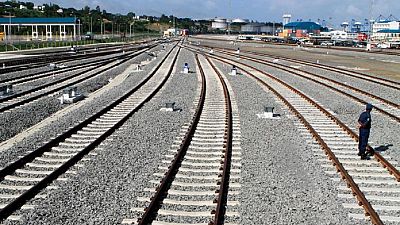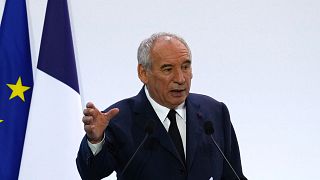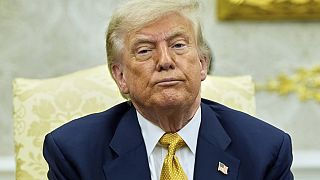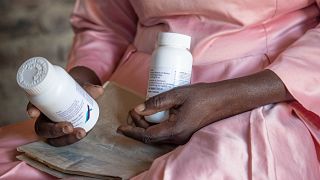USA
The United States has issued yet another warning to African nations over the risk of being laden with unsustainable debt through large-scale infrastructure projects that are not economically viable.
The criticism issued by the head of the U.S. Overseas Private Investment Corporation (OPIC) on Monday, comes as Washington seeks to ramp up development finance in the face of China’s global ambitions.
Unveiled in 2013, President Xi Jinping’s “Belt and Road” initiative aims to build an infrastructure network connecting China by land and sea to Southeast Asia, Central Asia, the Middle East, Europe and Africa.
Development support or debt trap?
China has pledged $126 billion for the plan, which has been praised by its supporters as a source of vital financing for infrastructure-starved partners in the developing world.
But in an interview with Reuters in Johannesburg, OPIC CEO Ray Washburne warned that the Chinese strategy created a debt trap for many poor nations.
“Just look at any project in these countries and they’re overbuilding the size,” he said. “We try to have countries realise that they’re indebting themselves to the Chinese.”
Washburne is not the first to warn of growing debt linked to Chinese infrastructure projects.
International Monetary Fund Managing Director Christine Lagarde in April cautioned China’s Belt and Road partners against considering the financing as “a free lunch”.
Sri Lanka formally handed over commercial activities in its main southern port in the town of Hambantota to a Chinese company in December as part of a plan to convert $6 billion of loans that Sri Lanka owes China into equity.
Djibouti, Zambia cautioned
U.S. officials have warned that a strategic port in the tiny Horn of Africa nation of Djibouti could be next, a prospect the government there has denied.
Dubai’s DP World threatens legal action against China over Djibouti trade zone
Washburne also voiced concern over a $360 million expansion of the airport in Zambia’s capital Lusaka currently being carried out with financing from the Exim Bank of China.
“The local economy isn’t benefiting from that. It’s a much too large airport. They’ll have too much debt on it. At some point, someone’s got to pay. Pay or the Chinese take control,” he said.
The U.S. alternative
Lawmakers in the United States are advancing a new law – the BUILD Act – through Congress that Washburne says should bolster private U.S. investment in developing nations by doubling OPIC’s access to U.S. Treasury credit to $60 billion.
OPIC this month launched an Africa-focused initiative that will earmark more than $1 billion over the next three years for projects supporting transportation, information and communications technology and value chains.
“Instead of giving them a fish, we want to teach them how to fish,” Washburne said. “They’ll have to stand on their own two feet. So we’re not in making loans or doing projects that don’t make economic sense.”
Washburne added that many investments would focus on the kinds of infrastructure projects Chinese firms are currently dominating, including ports, railroads and highways.
REUTERS














01:24
U.S. deports 95 Haitians amid policy shift as repatriates face uncertain future
01:00
Giant mural in France critiques Trump's immigration policies
01:17
Trump downplays US State Department's failure to release more Epstein files
00:43
American agency S&P downgrades Senegal's credit rating from B to B-
02:03
Muhammadu Buhari's legacy: higlight of his presidential tenure
01:11
World leaders express condolences over death of Nigerian ex-president Muhammadu Buhari